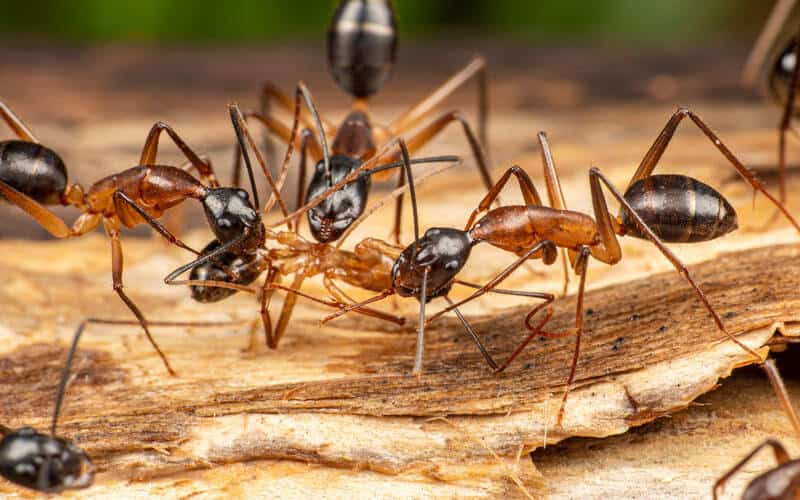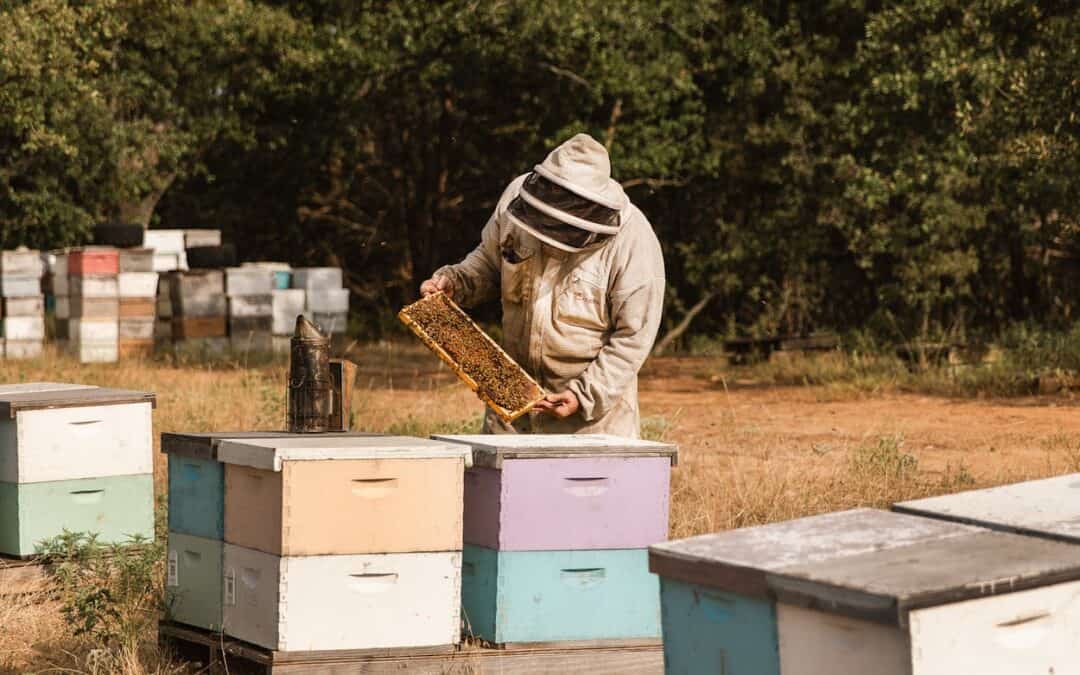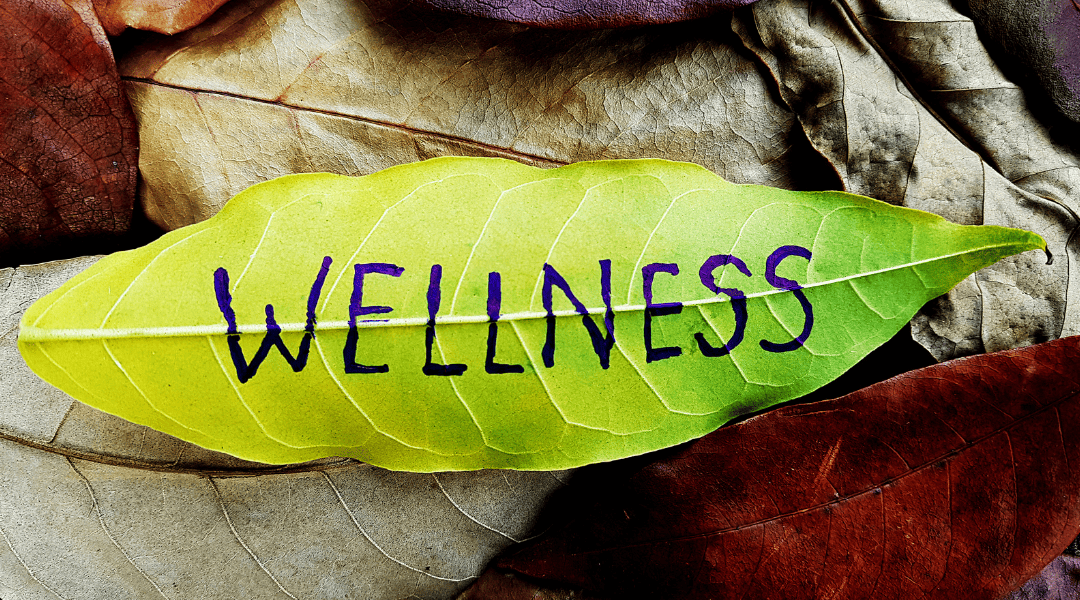READY TO GET STARTED?
REQUEST A FREE ESTIMATE
Fill out the form below or call (888) 466-7849 for a free, no-obligation estimate.

Living in Pompano Beach means enjoying warm weather year-round, but it also comes with dealing with seasonal pests. The city’s tropical climate creates perfect conditions for pests like mosquitoes, termites, ants, and rodents. Here’s how to protect your home effectively, regardless of the season, with pest control near me.
Pompano Beach’s humid weather and lush surroundings make it an ideal breeding ground for pests. Each season brings its own challenges:
Knowing these patterns can help you take proactive measures to stay pest-free.
Professional pest control services can provide tailored solutions for Pompano Beach pests, using targeted, eco-friendly treatments to address infestations effectively.
Consistency is key to keeping your home comfortable and pest-free. By combining preventative measures with professional expertise from pest control near me, you can tackle seasonal pests and enjoy peace of mind in every season. Reach out to a local Pompano Beach pest control expert today for customized solutions and a pest-free home!

Ants enter homes for food and water, especially during Florida’s rainy season or dry spells. Common attractors include food crumbs, unsealed containers, cracks around windows and doors, and pet food left out. Understanding their behavior helps eliminate what draws them indoors.
Close gaps and cracks around windows, doors, and baseboards with silicone caulk. Sealing not only blocks ants but also improves your home’s energy efficiency during Florida’s hot months.
Clean up crumbs after outdoor meals and keep pet food bowls elevated with a surrounding water moat. This discourages ants from dining near your home.
Trim bushes and trees near your home to eliminate easy ant pathways. Remove debris like leaves and mulch and keep garden areas clean and evenly watered to prevent ant colonies from forming nearby.
If ants manage to sneak inside, try these eco-friendly remedies:
Using natural solutions keeps your home comfortable while protecting Florida’s delicate ecosystems. For added support, work with local pest control professionals who specialize in eco-conscious methods for ant control near me. Together, you can maintain a pest-free home while respecting the environment.

Pest infestations can be a major nuisance for homeowners and businesses in Atlanta. Whether you are dealing with ants in the kitchen, rodents in the attic, or termites damaging your home’s foundation, securing professional pest control services is essential. But how much does pest control cost in Atlanta? In this blog, we will break down common pest control services, factors that influence pricing, and why investing in scheduled pest management is a smart decision. If you’re looking for affordable pest control solutions, read on to find out what to expect from a local exterminator and how to get the most effective pest control Atlanta has to offer.
When hiring a professional pest control company, the type of service you need will greatly affect the price. Here are some of the most common pest control services available in Atlanta:
This service includes treatments for common household pests such as ants, spiders, cockroaches, silverfish, and earwigs. It typically involves an initial treatment followed by regular maintenance visits to prevent future infestations.
Termites can cause significant structural damage, making them one of the most expensive pests to manage. A professional termite control company will offer bait stations, liquid treatments, or fumigation services to eliminate pests and protect your home from future infestations.
Rodents like rats and mice pose serious health risks. Professional rodent control services include trapping, exclusion, and preventative measures to keep rodents from returning.
Mosquitoes thrive in Atlanta’s humid climate. Mosquito control services use larvicides, adulticides, and habitat reduction to control populations effectively.
Bed bug infestations require specialized treatments such as heat treatments, chemical applications, or a combination of both.
If you have issues with raccoons, squirrels, or opossums, hiring a local exterminator for humane wildlife removal services is crucial.
The cost of pest control Atlanta services depends on several key factors:
Some pests, like termites and bed bugs, require specialized treatments that are more expensive than general pest control.
A minor pest issue will cost significantly less than a full-blown infestation requiring extensive treatment.
A one-time pest control treatment costs more per visit than an ongoing maintenance plan. Many homeowners opt for scheduled pest control services to prevent future infestations.
Larger homes or commercial buildings require more product and labor, increasing the overall cost.
Eco-friendly and green pest control solutions may cost more than traditional chemical treatments but offer safer alternatives for families and pets.
A highly trained professional from a reputable company may charge more, but their expertise ensures effective pest control solutions that save you money in the long run.
Many homeowners and businesses in Atlanta opt for ongoing pest management plans rather than one-time treatments. Here’s why:
Regular maintenance prevents large infestations that can be costly to eliminate.
Scheduled pest control ensures that treatments remain active and prevent future pest problems before they escalate.
Pests carry diseases, contaminate food, and cause allergies. Professional pest control services help protect your family and employees from health risks.
Termites, rodents, and carpenter ants can cause significant damage to your home’s structure. Routine pest management safeguards your investment.
Knowing that your home is protected from pests year-round provides peace of mind and a better quality of life.
Atlanta’s warm climate makes it a hotspot for various pests. Here are some of the most common:
If you’re looking for affordable pest control options, follow these tips:
Pests can be a persistent problem, but with highly trained professionals on your side, you can eliminate pests and protect your home year-round. Whether you need a one-time treatment or ongoing pest management, hiring an Atlanta pest control company ensures that you get the most effective pest control solutions available.
If you’re struggling with a pest problem, don’t wait—contact a local exterminator today for a free inspection and take the first step toward a pest-free home!
Don’t let pests take over your home or business. Contact us today to schedule your free inspection and get a customized treatment plan from Atlanta’s top pest control services provider. Our highly trained professionals are ready to provide affordable pest control solutions to keep your space pest-free. Call now and reclaim your home!

If you’ve discovered a buzzing colony of honeybees on your property, you might be wondering what to do. Don’t worry—there’s a way to handle this situation that protects both your home and these important little pollinators! Honeybee relocation is a great solution, and local beekeepers are key to making it happen.
Honeybees are vital for pollinating plants, which helps flowers bloom and fruits and vegetables grow. But sometimes, they end up in places that aren’t ideal for homeowners. This is where beekeepers step in to relocate the colony, giving the bees a better location while ensuring your property is free of concerns.
Here’s why local beekeepers play such an important role in this process and how it benefits homeowners like you.
Honeybees play a huge role in our environment. They pollinate about one-third of the crops we eat, including fruits, vegetables, nuts, and more. Without them, plants wouldn’t grow as well or produce as much food.
However, as urban areas expand and natural spaces shrink, honeybees sometimes end up building their hives in places like walls, attics, or trees near homes. Relocation protects their colonies and ensures they can continue their important work elsewhere, away from high-traffic areas or living spaces.
Beekeepers are experts in handling honeybee colonies. Their knowledge and care make relocation possible while keeping the bees healthy and productive. Here’s how they help:
When honeybee colonies need to be relocated, local beekeepers and pest control professionals often team up. Here’s what the process looks like:
Choosing honeybee relocation not only solves the immediate problem of a hive on your property but also helps the environment in several ways. Here’s how you benefit:
Honeybees are facing growing challenges like habitat loss and pesticide use . The work of local beekeepers in relocating hives is crucial for supporting bee populations. Without honeybees, we risk losing countless plants that depend on them, from garden flowers to crops that feed our families.
By choosing relocation over extermination, homeowners can make a big difference. It’s a simple decision that protects the bees, your property, and the environment.
Next time a hive appears near your home, remember that local beekeepers are here to help. They’re not just moving bees—they’re protecting pollination, promoting agriculture, and contributing to a thriving planet. Together, we can all do our part to support these incredible pollinators and keep our communities blooming. If you find a hive on your property, reach out to honeybee experts to responsively relocate the bees and protect your space, all while supporting a healthier environment.

Are pests intruding on your peaceful home while leaving you concerned about the environment and your family’s well-being? For homeowners in Fort Myers, the solution is simple and sustainable—green pest control. This eco-friendly approach to pest management is not only better for your health but also helps protect the environment, local ecosystems, and future generations.
This comprehensive guide explores why so many Fort Myers homeowners are making the switch to green pest control. From guarding your indoor air quality to promoting a healthier community, you’ll learn all the compelling benefits of choosing eco-conscious pest management solutions.
Green pest control refers to pest management methods that use natural, environmentally less-toxic products rather than traditional chemical pesticides. This eco-friendly alternative combine prevention strategies, non-toxic pest repellents, and sustainable practices to deliver effective results with minimal harm to people, pets, and the planet.
Now, let’s dive into why these sustainable pest control methods are gaining traction with eco-conscious homeowners in Fort Myers.
One of the most significant advantages of green pest control is its reliance on natural ingredients, which significantly reduces its environmental impact. Traditional pest control often employs harsh chemicals that linger in soil, water, and air, posing risks to non-target organisms such as birds, beneficial insects, and plants.
By using eco-friendly alternatives you can ensure that:
Fort Myers homeowners who choose green pest control are not only protecting their homes but also taking meaningful steps to preserve Florida’s lush natural ecosystems.
Did you know that some traditional chemical pesticides can compromise the quality of indoor air, leaving harmful residues that may take days or even weeks to dissipate? Residual chemicals can irritate respiratory systems, trigger allergies, and exacerbate chronic conditions like asthma. For families with children or elderly members, these risks are especially concerning.
Non-toxic pest control products are crafted to eliminate pests effectively without harming your home’s air quality. By switching to these less-toxic solutions, you can create a smarter, healthier living environment for everyone in your household.
While traditional pest control methods may offer quick fixes, they often fail to address the root causes of pest infestations. Green pest control, on the other hand, emphasizes prevention and sustainable solutions.
This proactive approach ensures fewer pests over time, leading to reduced treatment costs and long-lasting peace of mind.
Florida is blessed with diverse and delicate ecosystems. However, chemical pest control disrupts this balance, often killing beneficial insects such as bees, ladybugs, and butterflies. These organisms play critical roles in pollination, pest control, and maintaining the health of local flora.
Fort Myers homeowners recognize the importance of protecting these ecosystems, and green pest control allows them to contribute to the conservation of their community.
By switching to green solutions, you’re prioritizing what matters most—your family’s health, your home’s integrity, and the environment you cherish.
By making green pest control a part of your home management plan, you’re joining a growing community of environmentally responsible homeowners shaping a healthier future.
One of the biggest perks for Fort Myers residents choosing green pest control is the peace of mind it brings. Knowing that your pest management methods are eco-friendly, healthier for children and pets, and sustainable for the planet allows you to rest easy. You can trust green pest control to deliver results without sacrificing well-being or ethics.
If you’re ready to take the first step toward a healthier, smarter home, reach out to your Fort Meyer’s local team of pest control experts today. Together, we can help you create a pest-free environment while staying true to your values.
Because when it comes to your health and the environment, green is always the smarter choice.